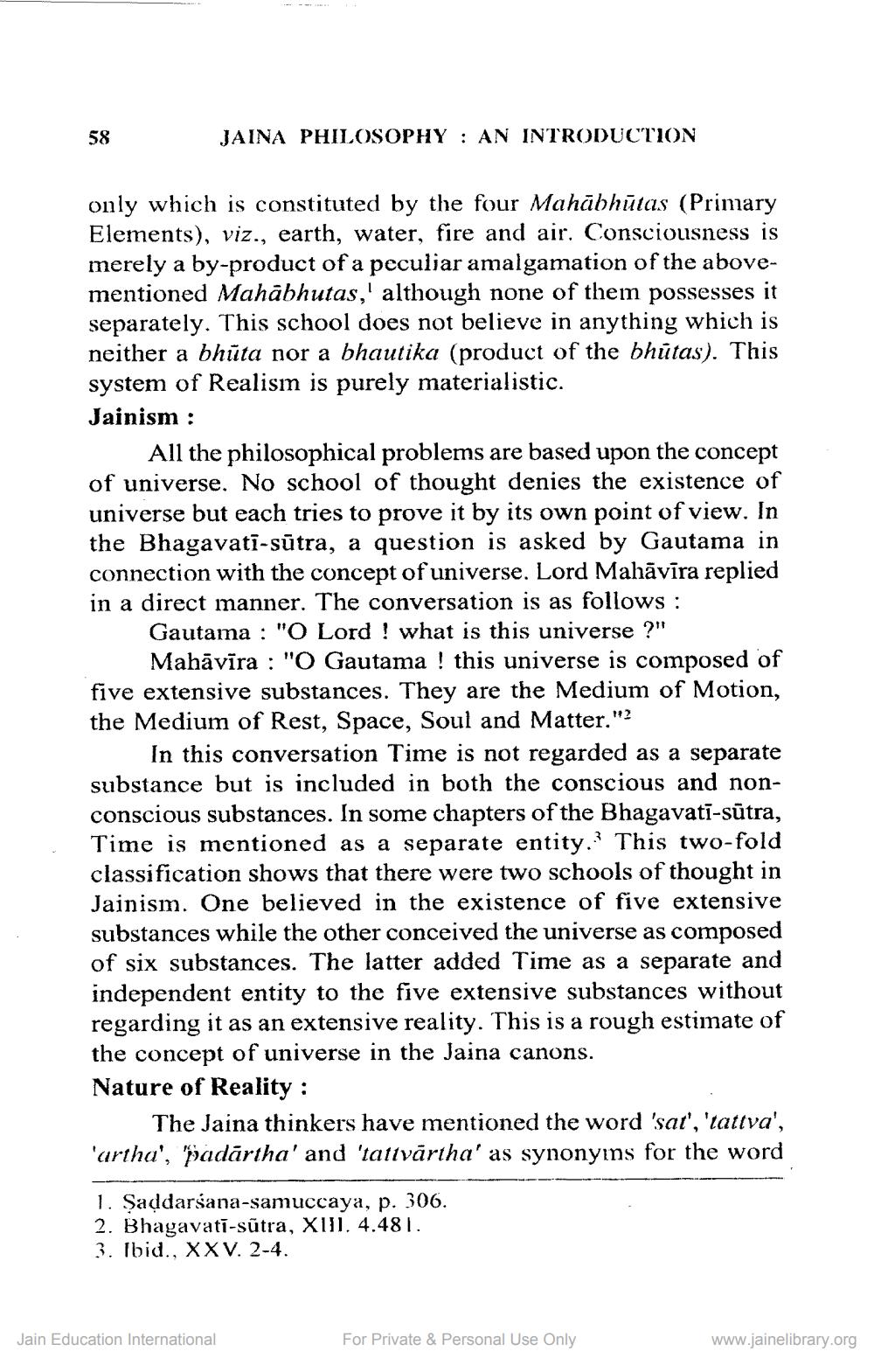________________
58
JAINA PHILOSOPHY : AN INTRODUCTION
only which is constituted by the four Mahābhūtas (Primary Elements), viz., earth, water, fire and air. Consciousness is merely a by-product of a peculiar amalgamation of the abovementioned Mahābhutas,' although none of them possesses it separately. This school does not believe in anything which is neither a bhūta nor a bhautika (product of the bhūtas). This system of Realism is purely materialistic. Jainism :
All the philosophical problems are based upon the concept of universe. No school of thought denies the existence of universe but each tries to prove it by its own point of view. In the Bhagavati-sūtra, a question is asked by Gautama in connection with the concept of universe. Lord Mahāvīra replied in a direct manner. The conversation is as follows :
Gautama : "O Lord ! what is this universe ?"
Mahāvīra : "O Gautama ! this universe is composed of five extensive substances. They are the Medium of Motion, the Medium of Rest, Space, Soul and Matter."2
In this conversation Time is not regarded as a separate substance but is included in both the conscious and nonconscious substances. In some chapters of the Bhagavati-sūtra, Time is mentioned as a separate entity. This two-fold classification shows that there were two schools of thought in Jainism. One believed in the existence of five extensive substances while the other conceived the universe as composed of six substances. The latter added Time as a separate and independent entity to the five extensive substances without regarding it as an extensive reality. This is a rough estimate of the concept of universe in the Jaina canons. Nature of Reality :
The Jaina thinkers have mentioned the word 'sat', 'tativa', 'artha', padārtha' and 'tatīvārtha' as synonyins for the word
1. Saddarsana-samuccaya, p. 306. 2. Bhagavati-sūtra, XUI, 4.481. 3. Ibid., XXV. 2-4.
Jain Education International
For Private & Personal Use Only
www.jainelibrary.org




